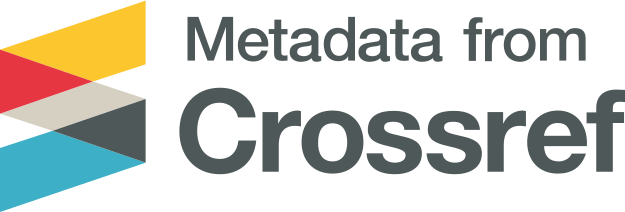Antara Mengelabuhi atau Mencari Untung: Adakah Fraud Accounting dibalik Permainan Angka diatas Kertas?
DOI:
https://doi.org/10.35838/jrap.2023.010.01.02Keywords:
Blank Note, Business, FraudAbstract
The practice of fraud is certainly not a new phenomenon in people's lives, this practice is like an epidemic that spreads to various circles and levels. The practice of fraud plunges a person into the abyss of loss which will certainly have an impact on prosperity and the economy whose consequences can be felt by many people. Enriching yourself is the goal of this practice, because there is a feeling of dissatisfaction with what you already have. Fraudulent practices can be found in all agencies and organizations as well as other businesses, one of which is the photocopy shop business. Methods of collecting and analyzing data in this study with interviews, observation, and documentation. The results of this study indicate that there are fraudulent practices in the photocopying business and that the average customer who requests blank notes comes from all walks of life. In this study it was found that the practice of fraud occurred in the photocopy shop business by manipulating blank notes using various reasons, such as cigarette money, transportation money or other personal interests. However, there are also photocopy shop businesses that don't want to do this because they think it can hurt the store's image.
Downloads
References
Abdussamad, Z. (2021). Metode Penelitian Kualitatif. CV. Syakir Media Press.
Abidin, F. I. N. (2018). Analisis Persepsi Akademisi Dan Praktisi Terhadap Fraud Serta Peran Whistleblowing Sebagai Upaya Pencegahan Dan Pendeteksian Fraud. Media Mahardika, 17(1), 153-164. https://doi.org/10.29062/mahardika.v17i1.67
Angraini, M. S., Yuliana, R., & Haryadi, B. (2020). The Effect of Internal Control Ehectiveness, Compliance with Accounting Rules and Information Asymmetry on the Tendency of Accounting Fraud with Accountability as a Moderating Variable. International Colloquium on Forensics Accounting and Governance (ICFAG), 1(1), 66-76.
Dinata, R. O., Irianto, G., & Mulawarman, A. D. (2018). Menyingkap Budaya Penyebab Fraud: Studi Etnografi Di Badan Usaha Milik Negara. Jurnal Economia, 14(1), 66-88. https://doi.org/10.21831/economia.v14i1.18453
Ginting, R. (2021a). Mengungkap Budaya Fraud Dibalik Rekayasa Permainan Di Atas Kertas. Jurnal Ilmiah MEA (Manajemen, Ekonomi, dan Akuntansi), 5(3), 2446-2464. https://doi.org/10.31955/mea.v5i3.1700
Ginting, R. (2021b). Studi Fenomenologi: Interaksi Kekuasaan Dengan Kompromi Sebagai Pemicu Fraud Pengadaan Barang Dan Jasa Pada Implementasi E-Procurement Di Pemerintah Kabupaten Powereri. Abdi Equator, 1(1), 46-52. https://doi.org/10.26418/abdiequator.v1i1.45716
Ginting, R., & Dewi, V. A. W. T. (2022). Seberapa Pentingkah Nilai Religiusitas dalam Mengurangi Budaya Penyebab Fraud pada Perusahaan? Jurnal Riset Akuntansi & Perpajakan (JRAP), 9(01), 19-27. https://doi.org/10.35838/jrap.2022.009.01.02
Ginting, R., Yanto, F., Apriant, R., & Darmawan, Y. (2021). Akuntansi Forensik Dalam Mengungkapkan Dan Menelisik Fraud: Studi Kasus Organisasi Nirlaba. Jurnal Audit dan Akuntansi Fakultas Ekonomi, 10(2), 50-64. https://doi.org/10.26418/jaakfe.v10i2.50982
Handoko, B. L. (2021). Fraud Hexagon Dalam Mendeteksi Financial Statement Fraud Perusahaan Perbankan Di Indonesia. Jurnal Kajian Akuntansi, 5(2), 176-192. https://doi.org/10.33603/jka.v5i2.5101
Hidayati, U., Fahriza, T. A., Mahardhika, E. A., & Azmiyanti, R. (2022). Literature Review: Peran Sistem Pengendalian Internal Dalam Pencegahan Kecurangan Akuntansi. Seminar Nasional Akuntansi dan Call For Paper (Senapan), 2(1), 86-95.
Kartika, & Atmadja, A. T. (2022). Analisis Transparansi Dan Akuntabilitas Dalam Pengelolaan Keuangan Peturunan Krama Desa Pada Upacara Sabha Malunin Di Desa Bali Aga (Studi Kasus Pada Desa Pakraman Pedawa). JIMAT (Jurnal Ilmiah Mahasiswa Akuntansi) Universitas Pendidikan Ganesha, 13(2), 378-389.
Ningrum, G. D. M. S., & Triani, N. N. A. (2022). Persepsi pegawai pemerintah mengenai faktor-Faktor yang mempengaruhi fraud di sektor pemerintahan kabupaten sidoarjo. Fair Value: Jurnal Ilmiah Akuntansi dan Keuangan, 4(11), 5157-5164.
Paramita, R. W. D., Rizal, N., & Sulistyan, R. B. (2021). Metode Penelitian Kuantitatif: Buku Ajar Perkuliahan Metodologi Penelitian Bagi Mahasiswa Akuntansi & Manajemen. Widya Gama Press.
Ramadhani, A. R., Triyuwono, I., & Purwanti, L. (2019). Mengungkap Cara Melakukan Praktik Fraud di Pemerintah Kota Malang. Jurnal Riset Akuntansi dan Keuangan Indonesia, 4(1), 53-66.
Rusdianti, I. S., Irmadariyani, R., & Kustono, A. S. (2022). E-Finance : Mitigation of Fraud Tendency in Indonesia. International Journal of Entrepreneurship and Business Development, 5(2), 574-582. https://doi.org/10.29138/ijebd.v5i3.1857
Sudarmanto, E., & Utami, C. K. (2021). Pencegahan Fraud Dengan Pengendalian Internal Dalam Perspektif Alquran. Jurnal Ilmiah Ekonomi Islam, 7(1), 195-208. https://doi.org/10.29040/jiei.v7i1.1593
Sugiyono, & Lestari, P. (2021). Metode Penelitian Komunikasi. Alfabeta.
Sulistiyo, A. B., Al Ardi, R. D., & Roziq, A. (2020). Implementasi the New Fraud Triangle Model Dengan Perspektif Syariah Dalam Mendeteksi Perilaku Fraud. EKUITAS (Jurnal Ekonomi dan Keuangan), 4(1), 21-46. https://doi.org/10.24034/j25485024.y2020.v4.i1.4324
Downloads
Published
Issue
Section
License
Authors who publish with this journal agree to the following terms:
- Authors retain copyright and grant the journal right of first publication with the work simultaneously licensed under a Creative Commons Attribution-ShareAlike 4.0 International License that allows others to share the work with an acknowledgement of the works authorship and initial publication in this journal.
- Authors are able to enter into separate, additional contractual arrangements for the non-exclusive distribution of the journals published version of the work (e.g., post it to an institutional repository or publish it in a book), with an acknowledgement of its initial publication in this journal.
- Authors are permitted and encouraged to post their work online (e.g., in institutional repositories or on their website) prior to and during the submission process, as it can lead to productive exchanges, as well as earlier and greater citation of published work (See The Effect of Open Access).














